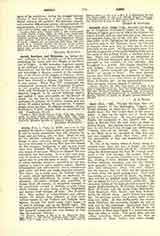

Aseneth (Hebrew: ASNCH; Vulg., Aseneth), the daughter of Putiphare (Poti-phera), priest of On. The Pharaoh of Egypt gave her to wife to the Hebrew Patriarch Joseph; and she bore him two sons, Manasses and Ephraim (Gen., xli, 45-50; xlvi, 20). In the ancient polity of the Egyptians the priests were second in honor only to the Pharaoh; hence the Fharaoh of Joseph‘s time gave him to wife one of the first princesses of the land. All Egyptologists agree that into the composition of the name Aseneth there enters the name of the goddess Neith, a tutelary deity of Sais. Neith was considered as an emanation of Ammon, and was associated with him as the female principle in the creation of the universe. Her hieroglyph is a shuttle. The Greeks identified her with Athene. Some interpret Asenath, “dwelling of Neith”, others interpret the name, “servant of Neith”, or “sacred to Neith”. The name Aseneth has not been found among the monuments of Egypt; but similar ones have been found as As-Ptah, As-Menti, As-Hathor, etc. In the apocryphal literature there are many curious legends of Aseneth.
A. E. BREEN

